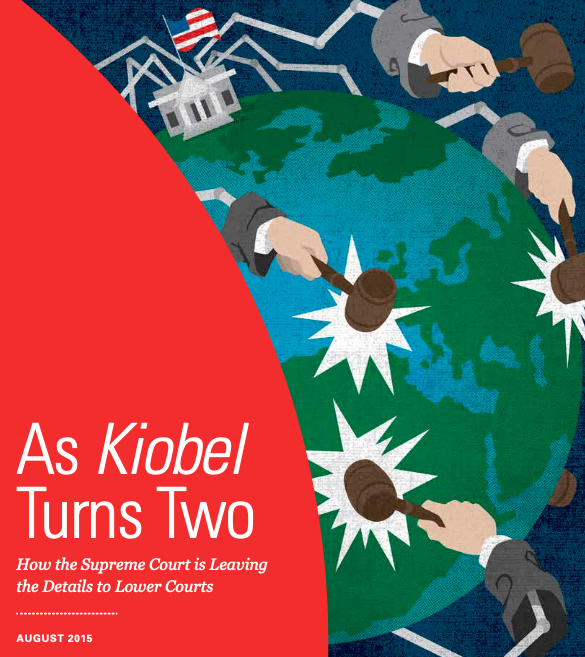Decision limits the ability of plaintiffs to import foreign lawsuits into U.S. courts
WASHINGTON, D.C.—The U.S. Chamber of Commerce today praised a decision by the U.S. Supreme Court that limits the global business community’s liability under the Alien Tort Statue (ATS). In its ruling in the case Kiobel v. Royal Dutch Petroleum (available here) the Court rejected a scheme by class action trial lawyers to use the ATS as a means of holding global companies liable for alleged violations of international law. The purpose of the ATS, when enacted more than 200 years ago, was to provide non-U.S. nationals access to federal courts for a small number of international claims.
“The U.S. Supreme Court’s decision today ensures that trial lawyers cannot continue to use the American judicial system to expose global businesses to frivolous and costly lawsuits,” said Thomas J. Donohue, president and CEO of the U.S. Chamber. “Today’s decision helps to ensure that America will continue to be an attractive place to do business and removes barriers for companies looking to do business throughout the world.”
When Congress passed the ATS in 1789, it did so to provide a federal forum for non-U.S. citizens to file a small number of international law claims, such as for assaults on ambassadors and for piracy on the high seas. The ATS lay dormant for almost 200 years, but then plaintiffs’ lawyers “rediscovered” the ATS, and for the last 15 years have been suing nearly every major industry sector for their business activities throughout the world.
The U.S. Chamber’s Institute for Legal Reform has worked extensively to educate policy leaders on the ramifications of ATS litigation. In addition, the Chamber’s National Chamber Litigation Center filed two amicus curiae briefs on the merits inKiobel v. Royal Dutch Petroleum (available here and here).
The U.S. Chamber of Commerce is the world’s largest business federation representing the interests of more than 3 million businesses of all sizes, sectors, and regions, as well as state and local chambers and industry associations.


